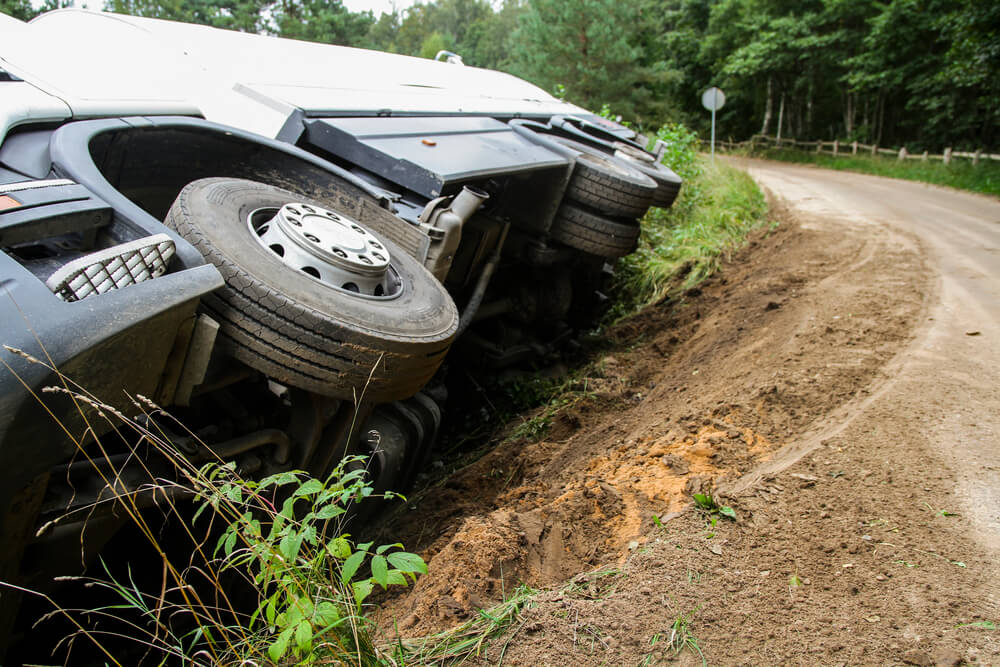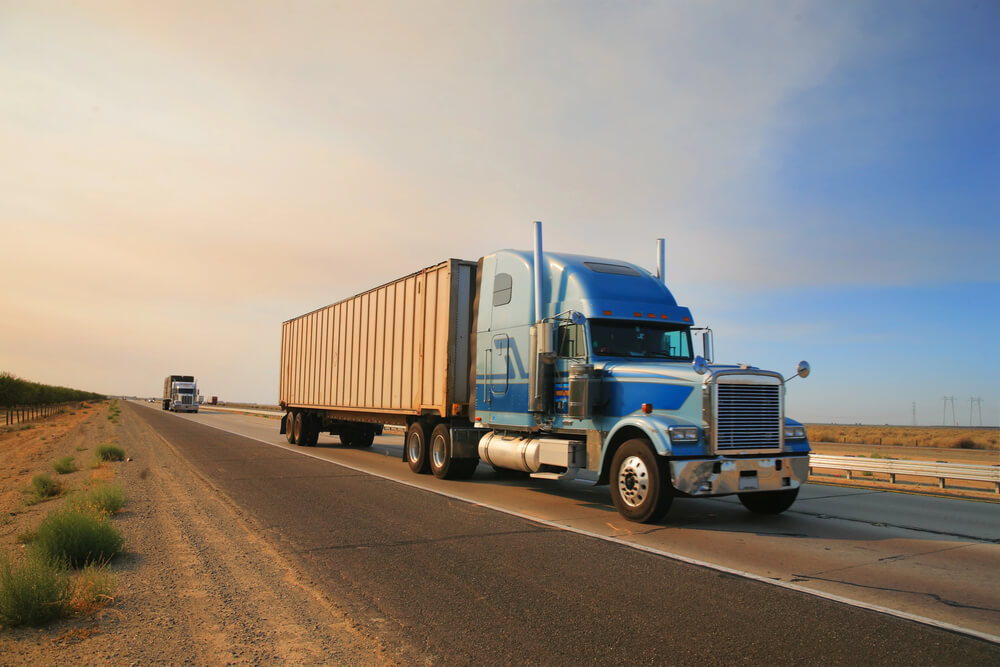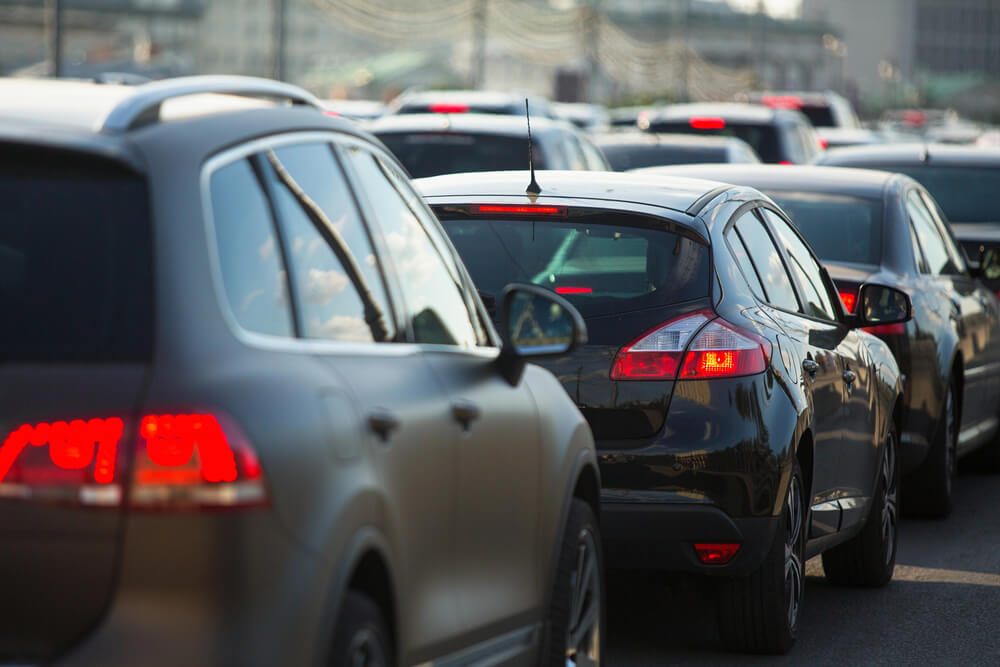Truck rollover accidents can become catastrophic events, especially when passenger vehicles are involved. When trucks tip over, they can collide with other vehicles. Motorists driving near a large truck when it rolls over may only have seconds to maneuver out of the way.
Don’t face the overwhelming aftermath of a truck crash alone. The experienced vehicle accident team at Koonz, McKenney, Johnson & DePaolis, LLP can help you get through a difficult time.
How Do Truck Rollover Accidents Become Life-Altering Events?

The injuries suffered by the occupants of passenger vehicles involved in a truck crash could prove severe. The weeks and months following a serious truck accident can bring physical, emotional, and financial challenges.
A collision that involves a large truck can leave survivors with emotional issues such as panic attacks and post-traumatic stress disorder. PTSD could cause accident victims to find themselves unable to operate or ride in a motor vehicle again. Long-term driving anxiety can limit or end an accident survivor’s social interactions or employment ability.
In addition to the terrifying memory of a truck tipping over in front of your car, the ensuing collision can cause long-term or disabling injuries. You should not have to pay for the medical costs and lost income that result from an accident you didn’t cause. Although truck rollover accidents can raise complex liability issues, an experienced accident attorney can help you obtain the injury compensation you deserve.
What Types of Injuries Could Result From a Truck Tipping Over?
In addition to the harm suffered by a truck driver if their rig tips over, the occupants of other vehicles sharing the road during the crash could suffer severe or life-altering injuries.
Some of the injuries that could result from a collision with a tipped-over truck include:
- Punctured organs, internal bleeding, or broken bones
- Scarring or disfigurement
- Spinal cord injuries
- Paralysis
- Traumatic brain injuries
Spinal cord injuries could cause paralysis. In cases that result in a complete break in the spinal cord, an accident victim could suffer total paralysis over the entire bodily region below the break.
It’s not uncommon for truck rollover accidents to cause traumatic brain injuries. TBIs can result even in cases where no actual blow to the head occurs. Harm can result when an accident’s force of impact causes the brain to shake inside the skull even though a vehicle’s safety restraints prevented any contact with an accident victim’s head.
What Is the Most Common Cause of a Rollover Accident?

Although there are a range of factors that could contribute to a rollover, the most common cause is driver error. Although transportation companies require their drivers to possess a commercial driver’s license and adhere to federal and state regulations, drivers are often at fault in truck rollover accidents.
The most common operator errors that could cause a rollover are related to:
- Driving recklessly: Speeding or driving aggressively can cause a rollover, especially on an incline or an exit/entry ramp.
- Driving while fatigued: Although truck drivers must log their time driving, they sometimes falsify their log records in order to meet delivery deadlines and drive while exhausted.
- Driving while under the influence: Drivers who turn to alcohol or drugs may not be able to react in time to roadway hazards that can cause their vehicles to tip over.
- Driving while distracted: Eating while driving or using a phone could cause a truck operator to misjudge or fail to react to road conditions that cause rollovers.
What Vehicles Have the Highest Rollover Risk?
Tractor trailers, also called semi-trucks or 18-wheelers, carry the greatest risk of rolling over because of their size and high center of gravity. The combination of a narrow truck width, a high center of gravity, and improperly secured heavy loads can lead to rollovers.
The risk of truck rollover accidents becomes even greater on steep inclines and curved roadway sections such as access and exit ramps. Their much greater weight also causes semi-trucks to have longer stopping distances. A semi that is unable to stop in time to avoid hitting an obstacle, such as roadway debris, could lead to a rollover.
In some cases, the truck driver may not be at fault if the truck was loaded improperly. Heavy cargo left unsecured could shift position within the truck and move the center of gravity to a spot that causes the vehicle to tip over more easily.
What Are the Odds of Passenger Car Occupants Surviving a Rollover Accident?

The chances of passenger vehicle occupants surviving truck rollover accidents often depend on how the crash occurs. If, for example, there’s a truck tipping over directly in front of your car, the odds of your survival may depend on your ability to lessen the force of impact.
There are proactive driving steps that take into consideration the size and weight of large trucks — they could lessen the force of impact in a collision or help you avoid crashing into a semi rollover.
Don’t follow large trucks too closely.
Give yourself enough room to stop or switch lanes if a truck tips over. It’s a generally accepted rule of thumb to maintain one car length of following distance for each 10 mph of driving speed. Increasing the “rule-of-thumb” following distance can, however, help to also increase the odds of surviving a truck-rollover crash.
Adjust your driving to match road conditions or bad weather.
Fog, rain, and icy roads increase the chances of truck rollover accidents. Decrease your speed and increase your following distance. Poor weather conditions will also make it harder for a large truck in front of you to stop.
Don’t let anything take your focus off the road ahead.
Don’t talk on your cellphone, text, or eat while driving — they’re all activities that can distract you and deprive you of the precious few seconds you may need to avoid a rollover ahead of you.
Truck Rollover Accidents Require the Services of an Experienced Personal Injury Attorney
Truck rollover accidents could bring up complicated issues when determining the at-fault party. Contact one of our skilled attorneys at Koonz, McKenney, Johnson & DePaolis, LLP if you were injured in a truck crash in Washington, D.C., Maryland, or Virginia, There’s no fee for a case consultation and you’ll only need to pay us when we win.

